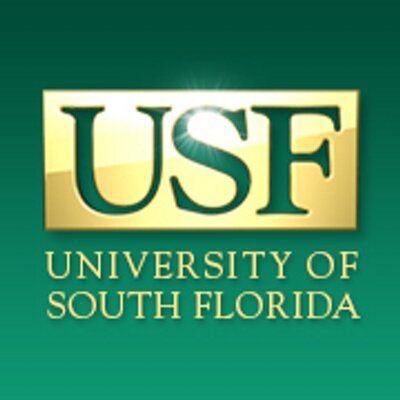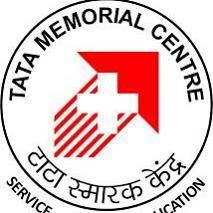预约演示
更新于:2025-05-07
ADAM8
更新于:2025-05-07
基本信息
别名 a disintegrin and metalloproteinase domain 8、ADAM 8、ADAM metallopeptidase domain 8 + [6] |
简介 Possible involvement in extravasation of leukocytes. |
关联
4
项与 ADAM8 相关的药物作用机制 ADAM8 antagonists [+8] |
在研适应症 |
非在研适应症- |
最高研发阶段临床1/2期 |
首次获批国家/地区- |
首次获批日期1800-01-20 |
靶点 |
作用机制 ADAM8 antagonists |
在研适应症 |
非在研适应症- |
最高研发阶段临床前 |
首次获批国家/地区- |
首次获批日期1800-01-20 |
靶点 |
作用机制 ADAM8 antagonists |
原研机构 |
在研适应症 |
非在研适应症- |
最高研发阶段临床前 |
首次获批国家/地区- |
首次获批日期1800-01-20 |
2
项与 ADAM8 相关的临床试验NCT05610735
Combination Therapy with Liposomal Doxorubicin and Withaferin a (Ashwagandha, ASWD) in Recurrent Ovarian Cancer
The proposed study "combination therapy with liposomal doxorubicin and withaferin A (Ashwagandha, ASWD) in recurrent ovarian cancer" is focused to determine the feasibility and maximum tolerance dose of Ashwagandha with liposomal doxorubicin (DOXIL) in recurrent ovarian cancer patients. The study contains two parts. In part 1 (phase I), 18 patients with recurrent ovarian cancer eligible for DOXIL therapy will be recruited and three doses of Ashwagandha (2.0 g, 4.0 g and 8.0 g) in the form of tablets along with DOXIL will be evaluated for feasibility and tolerance of ASWD. In part 2 (phase II), 54 patients with recurrent ovarian cancer will be recruited and treated with DOXIL and Ashwagandha (dose determined from part 1) to evaluate the complete response (CR), partial response (PR), and stable disease (SD).
开始日期2024-09-25 |
申办/合作机构 |
CTRI/2023/07/055361
A Phase II Clinical Trial of Standardized Withaferin-A for the treatment of Steroid Refractory acute Graft versus Host Disease.
开始日期2023-07-31 |
申办/合作机构 |
100 项与 ADAM8 相关的临床结果
登录后查看更多信息
100 项与 ADAM8 相关的转化医学
登录后查看更多信息
0 项与 ADAM8 相关的专利(医药)
登录后查看更多信息
1,501
项与 ADAM8 相关的文献(医药)2025-12-31·Virulence
A small RNA from
Streptococcus suis
epidemic ST7 strain promotes bacterial survival in host blood and brain by enhancing oxidative stress resistance
Article
作者: Yao, Huochun ; Liang, Zijing ; Wang, Shuoyue ; Wu, Zongfu ; Zhu, Xinchi ; Ma, Jiale
2025-06-01·Experimental Neurology
Roles of Adam8 in Neuroinflammation in experimental ischemic Stroke: Insights from single-cell and ribosome-bound mRNA sequencing
Article
作者: Li, Di ; Lu, Jinxin ; Li, Xiang ; Li, Haiying ; Yu, Zhengquan ; Liu, Jiale ; Xu, Li ; Shen, Xi ; Bai, Lei
2025-05-01·Genes & Diseases
ADAM8 inactivation modulates cellular component assembly gene expression in the mouse intervertebral disc
Article
作者: Tian, Zuozhen ; Zhang, Yejia ; Enomoto-Iwamoto, Motomi ; Chen, Ken
29
项与 ADAM8 相关的新闻(医药)2025-03-31
·生物探索
引言近年来,基因编辑技术如同生物医学领域的一颗璀璨明星,吸引着全球科学家的目光。CRISPR-Cas9等DNA编辑技术的出现,为治疗遗传性疾病带来了前所未有的希望。然而,如同硬币的两面,DNA编辑技术在展现巨大潜力的同时,也面临着一些技术瓶颈,其中最令人担忧的就是“脱靶效应”(off-target editing)。这种效应指的是编辑工具可能会意外地修改基因组中非目标区域的DNA序列,从而引发潜在的副作用。研究人员一直在努力寻找更加精准、安全的基因编辑方法。现在,一个令人振奋的消息传来!3月26日一项发表在《Nature Biotechnology》上的研究“Specific and efficient RNA A-to-I editing through cleavage of an ADAR inhibitor”,为我们带来了全新的解决方案。研究人员不再直接“操刀”DNA,而是将目光投向了它的“信使”——RNA(核糖核酸)。他们开发出了一种名为RNA转换腺嘌呤碱基编辑器(RNA transformer adenosine base editor,RtABE)的创新技术。这项技术能够对RNA上的特定碱基进行精确的修改,就像给RNA进行了一次精密的“微调”,更重要的是,它展现出了惊人的靶向性(specificity),有望彻底告别“脱靶”的困扰,为疾病治疗开辟一条更安全、更高效的道路。告别“脱靶”烦恼:RtABE如何实现RNA的“指哪打哪”?要理解RtABE的独特之处,我们首先需要了解DNA和RNA在细胞中的作用。DNA是细胞的“总司令部”,存储着所有的遗传信息。而RNA则像是“信使”和“执行官”,负责将DNA的指令传递给蛋白质工厂,并直接参与蛋白质的合成。许多疾病的发生,都与RNA分子的异常有关。因此,对异常的RNA进行精准的编辑和修复,同样可以达到治疗疾病的目的。RtABE的核心优势在于其极高的靶向性。为了实现这一点,研究团队巧妙地利用了一类被称为ADAR抑制剂(ADAR inhibitors,ADIs)的分子。ADAR(adenosine deaminase acting on RNA)是一类天然存在的RNA编辑酶,而RtABE的关键组成部分正是ADAR2的脱氨酶结构域(ADAR2 deamination domain,ADAR2DD),它负责将RNA上的腺嘌呤(A)碱基转化为肌苷(I),而肌苷在细胞中会被识别为鸟嘌呤(G)。那么,如何才能让ADAR2DD只在目标RNA位点发挥作用,而不去编辑其他RNA分子呢?这正是RtABE设计的精妙之处。“分子锁”与“精准钥匙”:RtABE特异性编辑背后的设计研究人员将ADI与ADAR2DD巧妙地融合在一起,形成一个“分子复合物”。在没有到达目标RNA序列时,ADI就像一把“分子锁”,紧紧地抑制住ADAR2DD的活性,使其无法进行RNA编辑。只有当RtABE成功结合到预先设定的目标RNA序列后,一个被称为TEV蛋白酶(TEV protease)的“精准钥匙”才会发挥作用。具体来说,研究团队利用了MS2噬菌体衣壳蛋白(MS2 coat protein,MCP)与MS2 RNA发夹结构(MS2 RNA aptamer)的特异性结合,以及BoxB RNA发夹结构(BoxB RNA aptamer)与λ噬菌体N蛋白(λN peptide)的相互作用。他们将MCP融合到ADAR2DD-ADI复合物上,并设计了一段包含MS2和BoxB RNA发夹结构的引导RNA(engineered agRNA,eagRNA)。同时,他们还引入了TEV蛋白酶的N端片段(TEVn)和C端片段(TEVc),其中TEVc与λN肽融合。当eagRNA与目标RNA结合后,MCP-ADAR2DD-ADI复合物会被招募到目标位点。与此同时,游离的TEVn也会扩散到目标位点,并与TEVc结合,形成完整的、具有活性的TEV蛋白酶(TEVp)。TEVp能够特异性地识别并切割ADI,解除ADI对ADAR2DD的抑制。一旦“分子锁”被打开,ADAR2DD就会被激活,开始高效地对目标RNA上的腺嘌呤进行编辑,将其转化为肌苷。这种“先抑制后激活”的策略,就好比一把只有在特定条件下才能解锁的工具,确保了RtABE只在目标RNA位点进行编辑,从而实现了极高的编辑特异性,有效避免了“脱靶”效应的发生。示意图(Credit: Nature Biotechnology)小鼠模型显神威:RtABE成功治疗罕见病带来新希望为了验证RtABE技术的有效性和安全性,研究团队选择了一种名为黏多糖贮积症I型(Hurler syndrome)的罕见遗传病小鼠模型进行实验。这种疾病是由于编码α-L-艾杜糖醛酸酶(α-L-iduronidase,IDUA)的基因发生突变,导致患者体内无法正常分解特定的糖类物质,进而引发一系列严重的健康问题,包括骨骼畸形、智力障碍和器官功能衰竭。研究人员通过腺相关病毒(adeno-associated virus,AAV)将编码RtABE的遗传物质递送到患病小鼠的肝脏细胞中。肝脏是合成和分泌α-L-艾杜糖醛酸酶的主要器官。实验结果令人惊喜!研究发现,经过RtABE治疗后,小鼠肝脏细胞中α-L-艾杜糖醛酸酶的活性得到了显著恢复。这表明RtABE成功地对突变的RNA进行了编辑,产生了功能正常的酶。更重要的是,研究团队对接受RtABE治疗的小鼠的多个组织(包括肝脏、脾脏、肾脏、心脏和大脑)进行了全面的脱靶编辑分析。他们利用高通量测序技术,检测了这些组织中是否存在非目标RNA的编辑事件。结果显示,与传统的RNA编辑方法相比,RtABE的脱靶编辑水平非常低,几乎可以忽略不计。这充分证明了RtABE具有出色的靶向性和安全性,为将其应用于临床治疗罕见病奠定了坚实的基础。此外,研究人员还检测了接受RtABE治疗的小鼠的疾病相关指标。他们发现,经过治疗后,小鼠体内与黏多糖贮积相关的代谢产物水平显著降低,疾病症状得到了明显的改善。这些结果进一步证实了RtABE在治疗黏多糖贮积症I型方面的巨大潜力。多重实验验证:RtABE展现高效性和广谱性除了在黏多糖贮积症I型小鼠模型中的成功应用,研究团队还进行了多项额外的实验,以更全面地评估RtABE技术的性能。他们设计了不同的引导RNA(eagRNA),靶向不同的RNA序列,发现在多种不同的序列背景下(包括UAN、AAN、CAN和GAN等),RtABE都能够高效地进行A-to-I的编辑。这表明RtABE具有广泛的适用性,可以用于编辑各种不同的RNA靶点。为了进一步验证RtABE的特异性,研究人员还进行了敲低实验(knockdown experiment)。他们利用小干扰RNA(small interfering RNA,siRNA)敲低了目标RNA的表达,结果发现RtABE的编辑活性也随之显著降低。这表明RtABE的编辑是高度依赖于目标RNA的存在的,进一步证实了其靶向性。研究人员还通过蛋白质印迹法(Western blot)分析了在目标转录本被敲低时A3DADI的切割情况,结果与RT-qPCR数据一致,进一步支持了RtABE的作用机制。此外,研究团队还对RtABE的组成部分进行了优化,例如对ADAR2DD进行了突变改造(E488Q),以进一步提高其编辑效率和特异性。他们还探索了不同的递送方式,例如利用腺相关病毒(AAV)进行体内递送,为未来的临床应用提供了更多的选择。这些多方面的实验结果充分证明,RtABE是一种高效、特异性强、且具有广谱性的RNA编辑工具,在基础研究和疾病治疗领域都具有巨大的潜力。RNA编辑潜力无限:未来医学领域的新星冉冉升起DNA编辑技术无疑是基因治疗领域的重要里程碑,但RNA编辑作为一种新兴的技术,也展现出了独特的优势和广阔的应用前景。与DNA编辑相比,RNA编辑具有以下几个显著的特点:更高的安全性:RNA的半衰期较短,编辑效果通常是暂时的,不会对基因组造成永久性的改变,从而降低了潜在的长期副作用风险。这对于一些只需要短期治疗的疾病来说,具有明显的优势。更强的可调控性:RNA的表达水平和修饰状态可以受到多种细胞信号和环境因素的调控,这为疾病治疗提供了更加灵活的策略。例如,我们可以根据疾病的进展情况,动态地调整RNA编辑的效率。更广泛的应用范围:除了遗传性疾病,RNA编辑在感染性疾病、神经退行性疾病、癌症等多个领域都展现出了巨大的潜力。例如,通过编辑病毒的RNA,可以抑制病毒的复制;通过编辑肿瘤细胞的RNA,可以抑制肿瘤的生长和转移;通过编辑神经细胞的RNA,可以延缓神经退行性疾病的进展。RtABE技术的出现,正是RNA编辑领域的一项重大突破。它解决了RNA编辑长期以来面临的关键挑战——特异性问题,使得RNA编辑技术在疾病治疗方面迈出了坚实的一步。许多研究人员认为,随着技术的不断成熟和完善,RNA编辑有望成为继DNA编辑之后,基因治疗领域的又一个“风口”,为人类健康带来更多的福音。精准医疗新篇章:RtABE引领基因治疗迈向更安全高效的未来总而言之,这项名为RtABE的RNA编辑新技术,通过巧妙地融合ADAR抑制剂和TEV蛋白酶系统,实现了对RNA的精准编辑,有效克服了传统基因编辑技术可能存在的“脱靶”难题。在黏多糖贮积症I型小鼠模型中取得的成功,充分证明了RtABE在治疗遗传性疾病方面的巨大潜力。这项研究的突破性进展,不仅为治疗罕见病带来了新的希望,也为RNA编辑技术在更广泛的疾病领域应用奠定了坚实的基础。我们有理由相信,随着未来研究的不断深入和技术的持续发展,RNA编辑技术将在精准医疗时代发挥越来越重要的作用,为人类的健康福祉贡献力量。让我们共同期待这项令人兴奋的技术能够早日走向临床,造福更多的患者!参考文献Li G, Chen G, Yuan GH, Wei J, Ni Q, Wu J, Yang B, Yang L, Chen J. Specific and efficient RNA A-to-I editing through cleavage of an ADAR inhibitor. Nat Biotechnol. 2025 Mar 26. doi: 10.1038/s41587-025-02591-2. Epub ahead of print. PMID: 40140558.责编|探索君排版|探索君转载请注明来源于【生物探索】声明:本文仅用于分享,不代表平台立场,如涉及版权等问题,请尽快联系我们,我们第一时间更正,谢谢!End往期精选围观Science | 你每天吃的食用油,可能正在悄悄喂养癌细胞热文Nature Methods | 癌症治疗大翻盘:长读长测序揭开73%漏诊的致命靶点热文Nature | 颠覆百年认知!肝脏"纤维化元凶"竟是代谢再生总指挥热文Science | 心脏发育暗藏的"生物光缆"如何颠覆医学认知?热文Nature | 线粒体的"能量之门"被破解:研究人员首次看清代谢引擎的分子开关
基因疗法核酸药物
2025-02-20
·生物探索
引言
在生命的微观剧场中,RNA分子如同精准的时空指挥官,通过动态的定位与运输调控基因表达、蛋白质合成乃至细胞命运。然而,研究人员长久以来只能通过"静态快照"(如固定细胞成像)或"人工标记"(如插入荧光标记序列)来推测这些分子的行为,就像通过化石拼凑恐龙的运动轨迹——直到2月18日加州大学伯克利分校的研究团队在《Nature Biotechnology》发布的突破性成果“Single-molecule live-cell RNA imaging with CRISPR–Csm”。他们开发的smLiveFISH技术(single-molecule live-cell fluorescence in situ hybridization),首次实现了对活细胞中天然RNA分子的实时单分子追踪,其精度足以捕捉单个mRNA在细胞质中的纳米级位移(位移分辨率达325 nm),将我们对生命基本过程的观测推向了全新维度。
这项技术巧妙改造了CRISPR-Csm系统,使其从基因编辑工具变身为分子显微镜:通过设计24-48个靶向RNA的crRNA探针阵列,配合多荧光标记的Csm蛋白复合体(每个复合体携带≥3个GFP标签),成功突破传统成像技术信噪比不足的瓶颈。研究团队不仅验证了NOTCH2 mRNA通过共翻译转运(cotranslational translocation)锚定在内质网的经典理论,更首次捕捉到MAP1B mRNA以1.3 μm/s的速度沿微管定向运输的震撼画面——这相当于每分钟跨越半个细胞长度的"分子特快专列"。当用嘌呤霉素(puromycin)抑制翻译时,NOTCH2 mRNA的静态群体比例从71%骤降至34%,而MAP1B mRNA竟加速至1.5 μm/s,并聚集成与P小体(P-body)共定位的应激颗粒,揭示了RNA运输与细胞应激反应的深度关联。
这项突破不仅解开了困扰学界20年的活体RNA观测难题,更为神经退行性疾病、癌症转移等重大疾病的研究提供了革命性工具。想象未来研究人员能像观看实时交通监控那样,追踪渐冻症(ALS)患者神经元中TDP43蛋白异常导致的mRNA运输瘫痪,或可视化癌细胞转移时β-肌动蛋白(β-actin)mRNA的前沿集结——smLiveFISH正在打开生命科学的"暗物质"宇宙,让我们得以亲眼见证那些曾只存在于教科书示意图中的分子奇迹。
这项由加州大学伯克利分校Jennifer A. Doudna团队开发的技术,首次实现了对活细胞中天然RNA分子的单分子级实时追踪——就像在细胞内部安装了纳米级GPS定位系统,研究人员终于能亲眼目睹mRNA在细胞内的动态旅程。
研究团队利用改良的CRISPR-Csm系统,成功观测到NOTCH2和MAP1B两种关键mRNA的运输机制:前者像被"锚定"在内质网附近进行共翻译转运,后者则如同微型货车沿着微管轨道向细胞边缘疾驰。
这项技术突破解决了困扰生物学界20年的难题。自1998年首次实现活细胞RNA成像以来,研究人员始终面临两大困境:要么需要人工改造RNA序列(可能改变其天然行为),要么成像分辨率不足(只能观察RNA团块)。smLiveFISH的诞生,标志着人类首次具备在天然状态下解析RNA时空规律的能力。
RNA的时空之旅:为何重要?
在传统认知中,RNA只是DNA与蛋白质之间的"传令兵"。但现代生物学发现,RNA分子自身就是精密的时空管理者:
定位决定命运:β-肌动蛋白mRNA会被精准运输到细胞运动前沿,其定位误差会导致细胞迁移异常(Ross et al., 1997)
时间就是生命:神经元中的mRNA必须在特定发育阶段抵达树突,错时到达可能引发神经退行性疾病(Buxbaum et al., 2015)
空间调控疾病:在渐冻症(ALS)患者中,TDP43蛋白异常会导致MAP1B mRNA运输紊乱,与神经元死亡直接相关(Coyne et al., 2014)
然而这些发现多来自固定细胞或人工标记系统,就像通过静态照片推测车辆行驶路线。smLiveFISH提供的实时动态影像,将彻底改变我们对生命基本过程的理解方式。
CRISPR-Csm系统:新一代RNA成像技术
技术原理:分子探针的协同作战
smLiveFISH的核心创新在于将CRISPR-Csm系统改造为"分子探针阵列"。传统CRISPR成像(如Cas13系统)如同单兵作战,每个RNA分子只能结合1个探针,信噪比难以突破。该技术则部署了24-48个Csm探针,通过以下机制实现突破:
多重锁定:针对目标RNA的3'非翻译区(3'UTR)设计crRNA阵列,形成"探针包围网"
信号放大:每个Csm复合体携带≥3个GFP荧光标记,多探针协同产生可检测信号
精准处理:利用Cas6酶切割超长pre-crRNA,确保探针在细胞质正确定位
实验数据显示,当使用24个crRNA探针时,85%的Csm信号点与smFISH(单分子荧光原位杂交)标记共定位,信噪比较传统方法提升30倍。即使在神经元等难转染的原始细胞中,也能保持78%的标记效率。
示意图(Credit: Nature Biotechnology)
技术优势:天然RNA的无创观测
与传统方法相比,smLiveFISH展现出三大革命性优势:
非侵入性:无需插入MS2茎环等人工序列,避免改变RNA稳定性(Garcia & Parker, 2016)
普适性强:成功在HEK293T、HeLa、IMR-90等多种细胞系验证
动态追踪:时间分辨率达100毫秒,可捕捉mRNA的瞬时停滞
更重要的是,Western blot和qPCR验证表明,该技术不会影响目标mRNA的丰度、降解速率或翻译效率,真正实现了"观测而不干扰"的科学理想。
解码NOTCH2 mRNA的运输密码
双模式运输:锚定与游离的辩证法
作为细胞膜受体的编码者,NOTCH2 mRNA展现出独特的双相运动特征:
静态群体(占71%):扩散系数D₁=0.007 μm²/s,几乎固定在内质网表面
动态群体(占29%):扩散系数D₂=0.094 μm²/s,在细胞质中自由扩散
这种分化源于其生物学使命——NOTCH2蛋白需要在内质网进行共翻译转运。当使用嘌呤霉素抑制翻译后,静态群体比例骤降至34%,动态群体扩散系数提升至0.189 μm²/s。这证实了经典理论:mRNA通过新生肽链"锚定"在内质网,实现蛋白质的精准投递(Reid & Nicchitta, 2015)。
空间经济学:定位优化的生存智慧
研究团队通过计算每个mRNA与细胞核的距离,发现NOTCH2 mRNA集中分布在距核10-20μm的"黄金地带"。这种空间布局可能实现三重优化:
翻译效率:靠近核糖体富集区,缩短氨基酸运输距离
质量控制:毗邻内质网相关降解(ERAD)系统,及时清除错误折叠蛋白
信号响应:在Wnt/Notch信号通路激活时快速启动翻译
这种精妙的定位策略,或许解释了为何NOTCH2缺陷会导致发育异常和癌症——mRNA的"居住区位"错误,可能比序列变异更具破坏性。
MAP1B mRNA的定向运输之谜
微管高速公路上的RNA货运
与NOTCH2形成鲜明对比,MAP1B mRNA展现出完全不同的运输图景:
定向运输:平均速度1.3 μm/s,最快可达2.5 μm/s(相当于每分钟移动150μm)
间歇性停顿:运输过程中出现2-5秒的停滞,可能与微管结合蛋白的"换轨"有关
纠错机制:约12%的mRNA会在错误方向行驶后折返,最终抵达细胞边缘
这种精准的运输机制依赖kinesin-1马达蛋白(Dictenberg et al., 2008)。当研究人员抑制翻译时,运输速度反而提升至1.5 μm/s,提示翻译复合体可能充当"分子刹车"。
空间布局的生物学意义
作为微管相关蛋白的编码者,MAP1B mRNA的定位展现出精妙的空间逻辑:
边缘富集:72%的mRNA分布在距细胞边缘<5μm区域
即时可用:在细胞迁移或轴突生长时,可就地翻译结构蛋白
疾病关联:在脆性X综合征中,FMRP蛋白缺陷会导致MAP1B mRNA运输异常(Guo et al., 2023)
这种"哪里需要哪里造"的策略,可能代表了一类重要mRNA的通用运输范式。研究团队推测,阿尔茨海默病中的tau蛋白异常聚集,或许正始于其mRNA的定位紊乱。
药物干预下的RNA行为剧变
应激反应:RNA的紧急集合令
当使用嘌呤霉素抑制翻译时,MAP1B mRNA展现出惊人的重组能力:
颗粒形成:15%的mRNA在30分钟内聚集形成直径0.5-2μm的颗粒
P小体归巢:这些颗粒与DCP1A标记的P小体(mRNA降解工厂)高度共定位
动态融合:捕捉到两个RNA颗粒接触后融合的完整过程
这揭示了细胞应对翻译危机的应急机制:通过隔离非必需mRNA来维持核心生命活动。值得注意的是,NOTCH2 mRNA却很少进入P小体,暗示管家基因mRNA具有特殊的保护机制。
药物研发新思路
这些发现为疾病治疗提供新视角:
神经退行性疾病:调节RNA运输速度可能延缓病理蛋白聚集
癌症转移:干扰ACTB等mRNA的定位可能抑制细胞迁移
病毒防御:某些病毒劫持宿主mRNA运输系统,新技术助力抗病毒靶点发现
研究团队正在构建"RNA运输图谱数据库",未来或可根据mRNA的动态特征开发新型生物标志物。
生物医学研究的革命性工具
技术拓展:从观察到操控
smLiveFISH的应用远不止于基础研究:
多色成像:利用不同Csm系统实现多RNA共定位分析
药物筛选:建立基于RNA运输速度的高通量平台
基因治疗:指导mRNA疫苗的细胞定位优化
团队已在小鼠模型中成功追踪亨廷顿病相关mRNA的异常运输,预计3年内进入临床前研究。
伦理与挑战
随着技术发展,新的科学伦理问题浮现:
隐私边界:是否允许观测受精卵等敏感细胞的RNA动态?
技术滥用:精准操控mRNA定位可能被用于生物武器开发
数据过载:单细胞RNA动态数据集可能达PB级,需要AI辅助解析
科学界正在建立RNA动态研究的伦理框架,确保技术造福人类。
打开生命运作的黑箱
smLiveFISH的诞生,标志着我们进入了RNA动态研究的新纪元。就像17世纪的显微镜揭示细胞存在,21世纪这项技术将让我们真正理解生命的时空密码。当研究人员能实时观测单个RNA分子的生灭旅程,那些困扰我们百年的疾病机理、进化谜题,或许正隐藏在这些纳米级的生命舞步中。
未来已来——在活细胞的微观宇宙里,每一段RNA都在演绎着自己的星际穿越。而我们,正站在解码生命史诗的起点。
参考文献
Xia, C., Colognori, D., Jiang, X.S. et al. Single-molecule live-cell RNA imaging with CRISPR–Csm. Nat Biotechnol (2025). https://doi.org/10.1038/s41587-024-02540-5
责编|探索君
排版|探索君
转载请注明来源于【生物探索】
声明:本文仅用于分享,不代表平台立场,如涉及版权等问题,请尽快联系我们,我们第一时间更正,谢谢!
End
往期精选
围观
Science | T细胞为何会“疲惫不堪”?代谢与表观遗传的答案
热文
Nature Biotechnology | 免疫治疗新突破:如何精准锁定病变细胞?
热文
Cell | 突破传统认知:电突触如何动态调控神经网络行为
热文
Nature Biotechnology | 如何解码非编码区的“基因组暗物质”?
热文
Nature Methods | 如何利用温度精准操控细胞?细胞命运调控的新思路
信使RNA基因疗法
2024-12-29
在本系列文章的最后一篇文章,我们将围绕新型递送系统VLP递送mRNA和RNP 2种体系的包装问题,尝试总结我们在技术发展和专利策略中的相关研究。
新型递送系统VLP的专利策略(总结)
by
TiPLab初
VLP(Virus-like Particle,病毒样颗粒)作为一种新型递送平台,兼具病毒载体和非病毒载体的优势,既能有广泛的靶向性,同时又能在体内瞬时递送mRNA、蛋白质或RNP。最近几年,张锋、Jennifer A. Doudna、David R. Liu等基因编辑领先团队陆续报道了利用VLP成功递送mRNA或RNP形式的CRISPR/Cas9、碱基编辑器BE和先导编辑器PE到体内并且能够实现编辑效果,这些结果显示VLP在基因编辑药物递送方面的潜力。
VLP是在传统逆转录病毒载体的基础上进行删减,只保留负责组装成病毒包膜和衣壳的Gag-Pol蛋白,去除病毒的基因组核酸LTR。由于没有包装信号ψ,VLP如何能够在衣壳组装过程中将mRNA、蛋白或RNP包装到壳内,是VLP实现高效递送的关键问题之一,也是VLP递送领域的技术创新点之一。
前面的文章,我们通过对VLP相关的技术研究文献梳理,总结了领域内解决该问题的中心思想:模仿病毒基因组LTR下游的包装信号Ψ与衣壳蛋白Gag的相互作用,人工创造待递送的货物mRNA或蛋白与Gag的特异性结合。其中,代表性的技术手段包括2种:
1. 利用适配体RNA和适配体结合蛋白系统之间的特异性连接,代表的系统有MS2、Com、PP7等适配体系统
2. 通过包含蛋白酶切割位点的linker融合衣壳蛋白Gag和待递送的货物
图1 VLP包装mRNA和蛋白的主要技术手段(改编自doi: 10.1093/nar/gkz605; doi: 10.1038/s41467-018-07845-z)对于平台的专利保护
基于这些平台手段的开发与探索,“不能”到“能”的问题已经能够得到解决,目前VLP已经能够实现mRNA和蛋白的包装。当然,领域内也持续探索围绕这一问题的更多新型解法或更优解。比如,前面文章我们提到的张锋团队探索出了基于人体内本身能够组装成VLP的PEG10开发的SEND递送系统;还有其他玩家在开发更多的“连接-结合”手段,包括Stanislav Indik等利用能够与Gag相互作用的病毒辅助蛋白Vpr融合Cas9;或者,利用其他特异性结合系统,P3-P4螺旋曲肽(David R. Liu)、FKBP12-FBR多聚化系统(Peter Gee)来取代融合策略。
对于这些持续探索各种包装平台方法的开发者来说,因为致力于解决能否应用于多种递送货物的“不能-能”问题,围绕如何实现VLP包装货物,研发涉及了开创性的“Gag蛋白和递送蛋白之间连接、识别”的技术方案,因此能够有机会获得不限定递送基因、保护连接识别方法的平台专利。对于系统优化的专利保护
在选定使用何种包装策略的VLP系统后,考虑到活性分子和VLP递送系统的适配性,药物开发企业可能需要开展系统性优化工作来提高整体包装和递送效率,类似于David R. Liu在2022年和2024年针对碱基编辑器BE和先导编辑器PE所作的一系列VLP版本优化工作。
这些工作是在已有VLP包装策略上的优化,涉及较多细节特征,并且各个优化细节带来的技术效果可能与特定的活性分子种类密切相关。相关的发明内容在进行专利保护时,建议要从众多的优化细节特征中筛选出优先级更高的特征,以该特征为核心展开进行VLP系统或VLP递送特定活性分子的专利保护,以获得比所有优化特征全部限定更大的保护范围。如我们在上一篇文章中提到,可以从单个特征对整体递送效果的影响、技术特征是否在类似系统中普适性应用、是否具体可替代性等多个角度,综合判断VLP优化过程中单个细节技术特征专利保护的优先级。TiPLab小贴士
目前,VLP递送系统的研究与应用仍然处于早期,我们也期待,这一新型递送系统在人体内的安全性和有效性能够被更多的领域内玩家验证,未来有更广阔的应用市场。对于选择VLP作为递送载体的玩家,在管线开发过程中,我们建议,一方面,需要适时地排查和管控各种实现包装的技术手段相关的宽泛平台专利障碍,另一方面,及时地针对递送效率优化的相关工作进行针对性的专利保护。
* 以上文字仅为促进讨论与交流,不构成法律意见或咨询建议。
© 作为一家专业服务公司,TiPLab坚持原创的系统的研究,注重系统性知识积累与专业影响力。欢迎读者个人分享转发,各专业平台媒体如需转载请联系TiPLab获得授权。
TiPLab提供基于研究的核心知识产权服务
FTO:技术商业化实施的侵权风险防范
TiPLab通过对细分技术领域内核心技术和重要专利的长期研究,结合自身在数据检索和分析方面的专长,致力于帮助客户深入了解、积极应对潜在的专利侵权风险。
Due Diligence:商业活动中的知识产权尽职调查
在企业许可交易、融资、并购、上市等过程中,TiPLab帮助企业和投资方了解目标技术/产品的专利保护强度及产品商业化过程中潜在的专利侵权风险,从而为商业谈判和决策提供支持依据。
Strategic Patenting:全球范围内高价值专利资产的创设
TiPLab熟知全球主要国家和地区的法律实践和细分领域内的前沿技术进展情况,通过前瞻性的专利布局策略,帮助客户通过创设有价值的专利资产而获取、保持和巩固独特的竞争优势。
信使RNA
分析
对领域进行一次全面的分析。
登录
或

生物医药百科问答
全新生物医药AI Agent 覆盖科研全链路,让突破性发现快人一步
立即开始免费试用!
智慧芽新药情报库是智慧芽专为生命科学人士构建的基于AI的创新药情报平台,助您全方位提升您的研发与决策效率。
立即开始数据试用!
智慧芽新药库数据也通过智慧芽数据服务平台,以API或者数据包形式对外开放,助您更加充分利用智慧芽新药情报信息。
生物序列数据库
生物药研发创新
免费使用
化学结构数据库
小分子化药研发创新
免费使用




